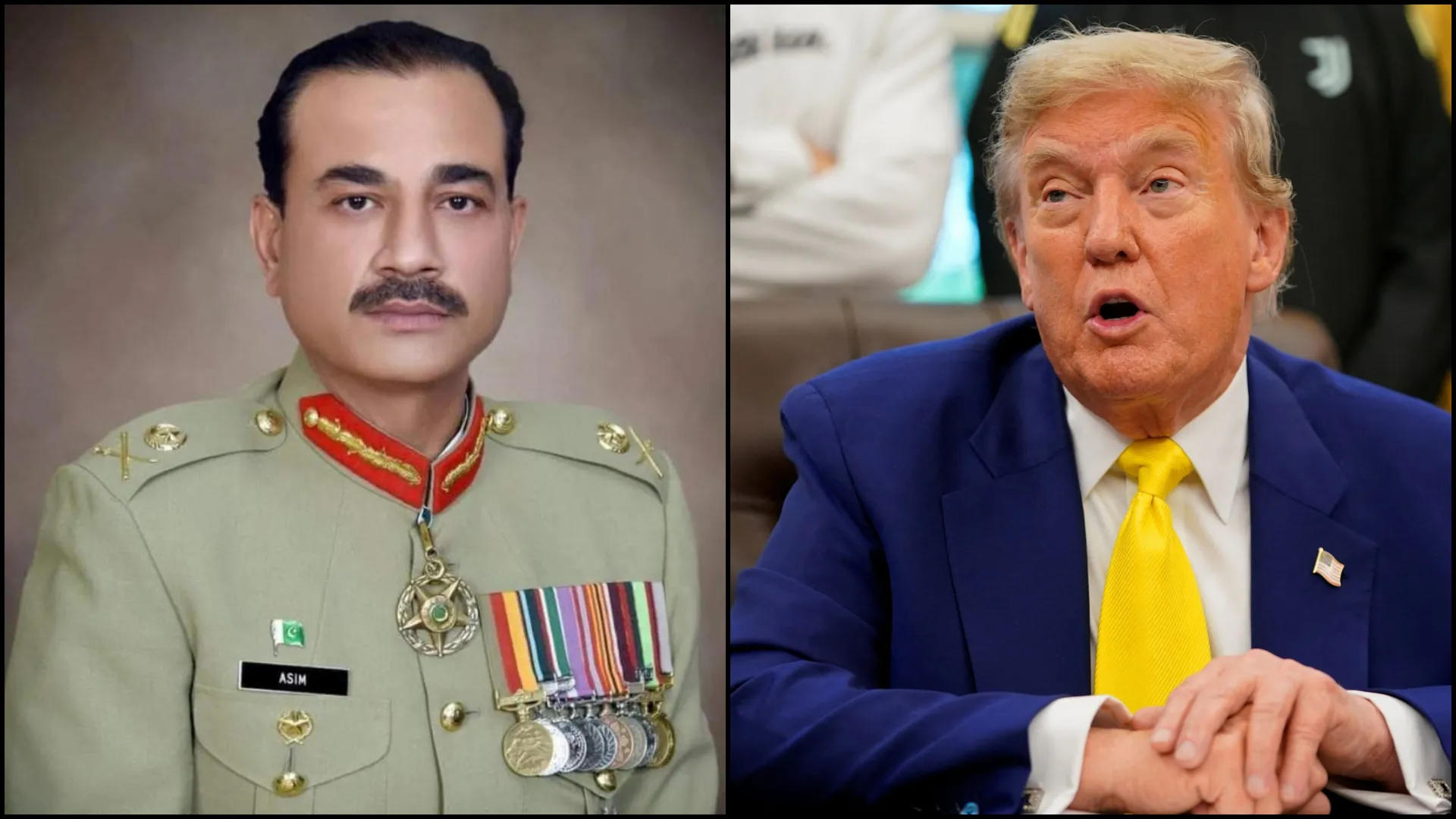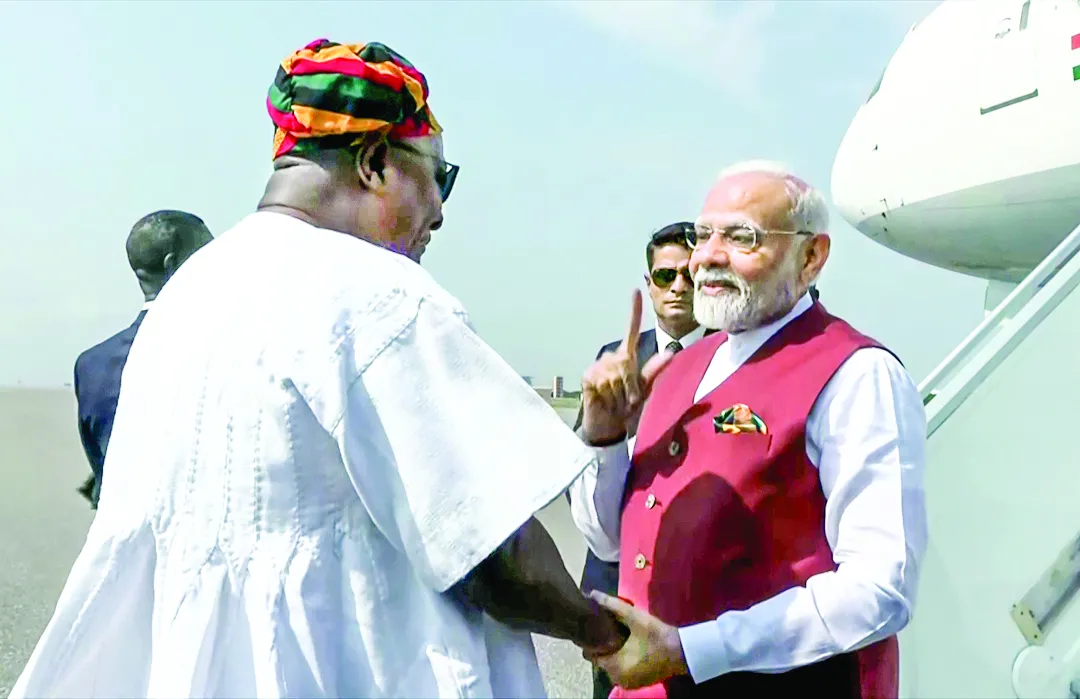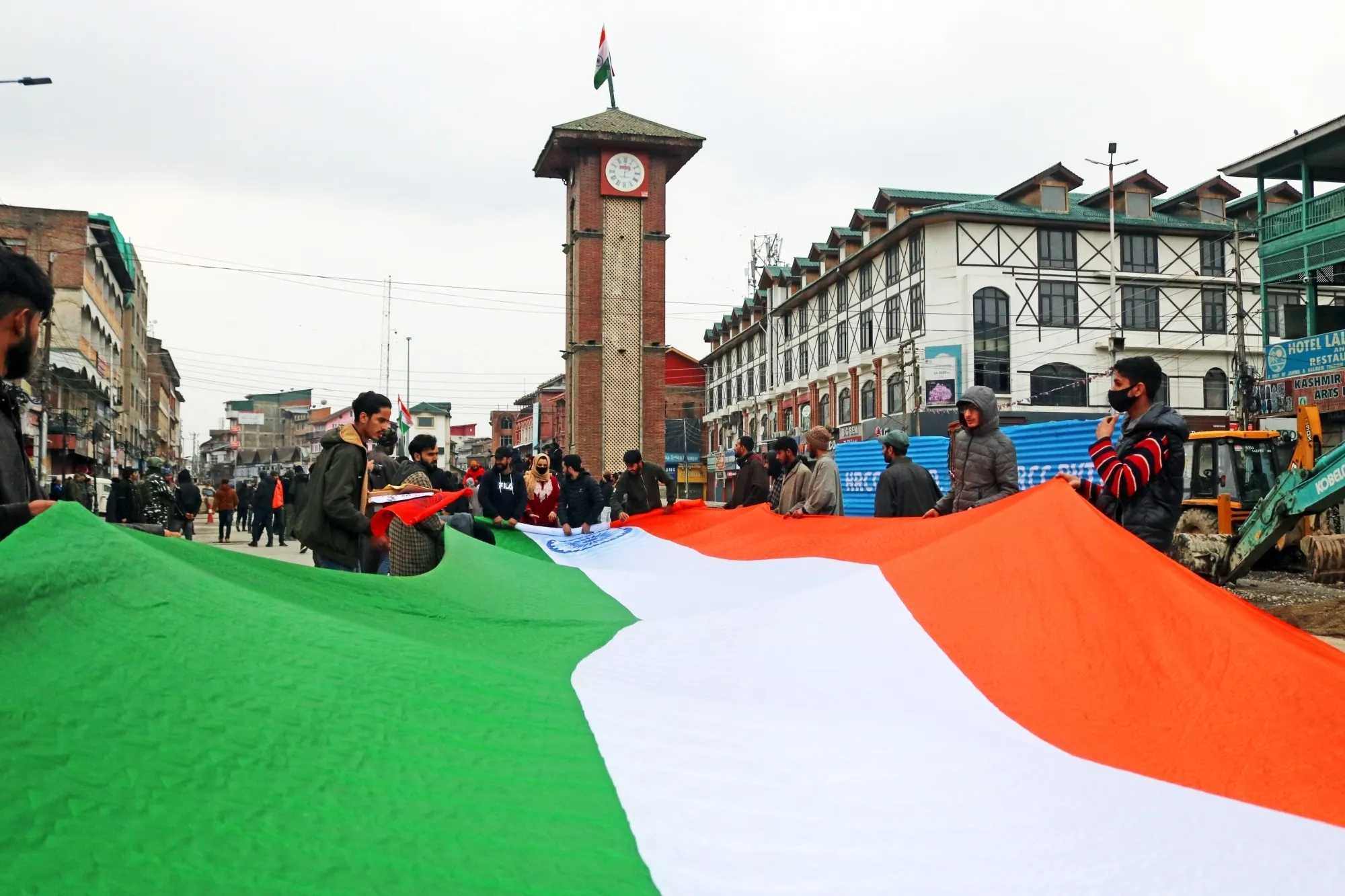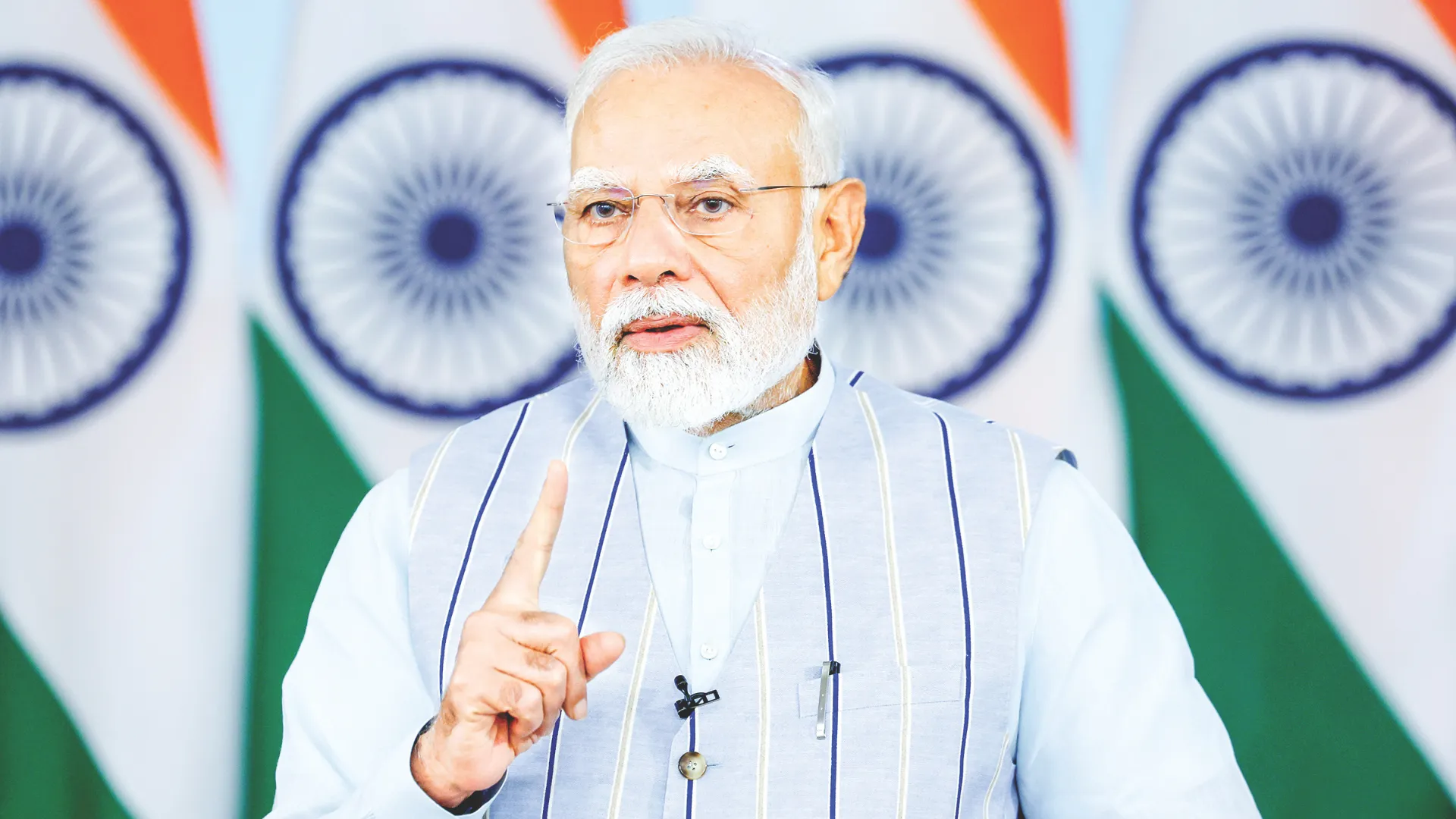As the United States and Israel reportedly strategize a potential ground assault on Iran through covert operations and regional partnerships, one name resurfaces — Pakistan. The recent lunch hosted by former U.S. President Donald Trump for Pakistan’s Army Chief General Asim Munir has sparked questions across diplomatic and strategic circles. Is Pakistan once again becoming a staging ground for foreign operations in the Muslim world? And more importantly, can Pakistan ever be trusted — even by the so-called Islamic Ummah it pretends to lead?
This question acquires urgency in light of Bharat’s ongoing Operation Sindoor, a bold and self-defined military-diplomatic offensive reshaping South Asia’s strategic posture. As Prime Minister Narendra Modi asserted in his 35-minute call with Trump, India shall not tolerate terrorism as proxy war anymore — it will treat it as war itself. No space for ambiguity. And no space for so-called third-party mediation — a direct rebuke to any whispers of American “peace initiatives” involving Pakistan.
The Trump-Munir Lunch: A Telltale Signal
In diplomacy, symbolism often speaks louder than statecraft. So when Trump — a former President with enduring clout — invites General Asim Munir to a private lunch, it sends a loud signal. Munir, heading a military that has presided over multiple coups, nuclear proliferation, and terrorism sponsorship, was being accorded legitimacy. Was this an informal message that Pakistan could still act as Washington’s foot soldier in future Middle Eastern scenarios?
For seasoned observers, the signs are familiar. And the precedent is chilling. If indeed Pakistan becomes a player in a Western-backed offensive against Iran or any part of the Islamic world, it will be far from the first time Islamabad has sacrificed Muslim lives and solidarity at the altar of selfinterest.
Pakistan’s Pattern of Betrayal: Historic and Systemic
Let us consider the long and bloodied record of Pakistan’s betrayal of the Ummah: Operation Black September (Jordan, 1970): Pakistan vs Palestinians
Perhaps the most coldblooded betrayal of the Islamic spirit occurred when Brigadier Zia-ulHaq, stationed in Jordan, led Jordanian forces against Palestinian fighters (PLO). Thousands of Palestinians were massacred in cold blood. It was not Israel or the U.S. that crushed Palestinian resistance — it was another Muslim army, under a Pakistani commander.
This was no tactical necessity — it was a calculated betrayal of a pan-Islamic cause. Pakistan’s loyalty lay with monarchy and money, not the Ummah. Uyghur Muslims: Silence in the Face of Genocide
In China’s Xinjiang province, over one million Uyghur Muslims have been incarcerated in so-called re-education camps. Islamic practices are criminalized; mosques demolished; Arabic-script Qurans seized. Yet Pakistan — the selfdeclared leader of Muslim causes — has not only remained mute but has actively endorsed China’s actions. Prime Minister Imran Khan called himself “unaware” of the situation, while Pakistan signed joint statements justifying Chinese crackdowns. Because Beijing holds Islamabad’s purse strings. Brotherhood ends where chequebooks begin.
Afghanistan: CIA’s Frontline State, Twice Over
During the Soviet-Afghan war (1979–1989), Pakistan acted as a staging ground for U.S. arms and jihadist recruitment. While the Mujahideen fought under the illusion of pan-Islamic resistance, Pakistan’s ISI profited immensely by siphoning off American money. Post 9/11, Pakistan again allowed its territory to be used for American drone strikes against fellow Muslims. Entire tribal families in Waziristan, Swat, and FATA perished — but not a word of protest from Rawalpindi. For Islamabad, Ummah has always been a facade to broker Western deals.
Bangladesh (1971) : Slaughter of Fellow Muslims
Nothing exposes the hollowness of Pakistan’s Islamic rhetoric more than its brutal campaign in East Pakistan (now Bangladesh). The Pakistani Army slaughtered over 3 million Bengali Muslims, raped hundreds of thousands of women, and displaced millions. All because East Pakistan demanded dignity, language rights, and autonomy. There was no India-Pakistan war initially — it was a civil war within a Muslim nation, where West Pakistan treated East Pakistan as a colony. The Ummah was shattered by Pakistan’s internal imperialism.
Yemen: Sitting on the Fence, Trading Loyalty
In 2015, when Saudi Arabia called on Pakistan to join its military coalition against the Iran-backed Houthis in Yemen, Pakistan refused. Despite years of Saudi aid, loans, and oil supplies, Islamabad chose to abstain, fearing Iranian backlash. This wasn’t a decision for peace — it was a diplomatic gamble, where Pakistan sought to balance both Riyadh and Tehran for future leverage. Ummah unity was once again sacrificed for realpolitik.
Sectarian Terror: Divide and Rule Within Islam
Within Pakistan itself, minority Muslim communities — especially Shias, Ahmadis, and Sufis — are routinely targeted by state-backed or state-ignored terror outfits like Lashkar-e-Jhangvi and Sipah-e-Sahaba. Massacres during Muharram, targeted killings of Shia doctors, and routine hate sermons against Ahmadis are a norm. Pakistan doesn’t just abandon the Ummah externally — it devours it from within.
The Iran Dilemma: Proxy State or Rogue Ally?
Pakistan has long walked a tightrope between Iran and the U.S./Saudi axis. While it shares a border with Iran, its intelligence services have historically allowed antiIranian groups to operate from its soil. The recent visit of General Munir to the U.S. hints at yet another betrayal brewing. If Iran is indeed the target of future military action by the U.S. or Israel — as many analysts fear — then Pakistan’s role as a logistical or intelligence base would mark a direct attack on Islamic regional solidarity. Again, loyalty auctioned off.
Pakistan – No Vanguard of Islam, Just a Pawn of Interest
The Islamic concept of Ummah is one of collective dignity, fraternity, and justice. Pakistan has repeatedly desecrated that idea — not by mistake, but by design. It has turned Islam into a diplomatic slogan, used only when convenient, and abandoned when costlier truths emerge. In contrast, Bharat has acted with consistency and moral clarity.
Prime Minister Modi’s statement to President Trump — rejecting mediation, upholding sovereignty, and redefining terrorism as war — shows a civilisational confidence that stands in stark opposition to Pakistan’s moral collapse. As Operation Sindoor continues, India must prepare for both diplomatic deception and covert subversion from Pakistan and its Western backers. But more importantly, Bharat must tell the Islamic world: Pakistan does not speak for Islam. It speaks only for its generals, its debts, and its ambitions. There is no Ummah when Pakistan enters the room — only duplicity draped in religious theatre.
Shri Siddhartha Dave is an alumnus of United Nations University, Tokyo, an eminent columnist and a former Lok Sabha Research Fellow. He writes on Foreign Affairs and National Security. Author can be reached at siddhartha. dave@gmail.com























